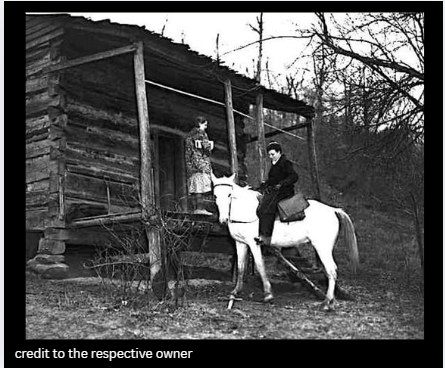In 1938, deep in the hills of rural Kentucky, a determined librarian rode on horseback through fog and forest, her saddlebags filled not with food or mail—but books.
She was one of the “book women,” part of the Pack Horse Library Project started during the Great Depression by the Works Progress Administration (WPA). In one of America’s most remote areas, these librarians carried stories across mountains, creek beds, and snowbanks to readers who had no other way to access them.
Often paid just $28 a month, they rode up to 100 miles a week, braving harsh weather and rough terrain—not for fame, but because they believed knowledge should never be out of reach. In the hollows of Appalachia, they weren’t just delivering books—they were delivering hope.
